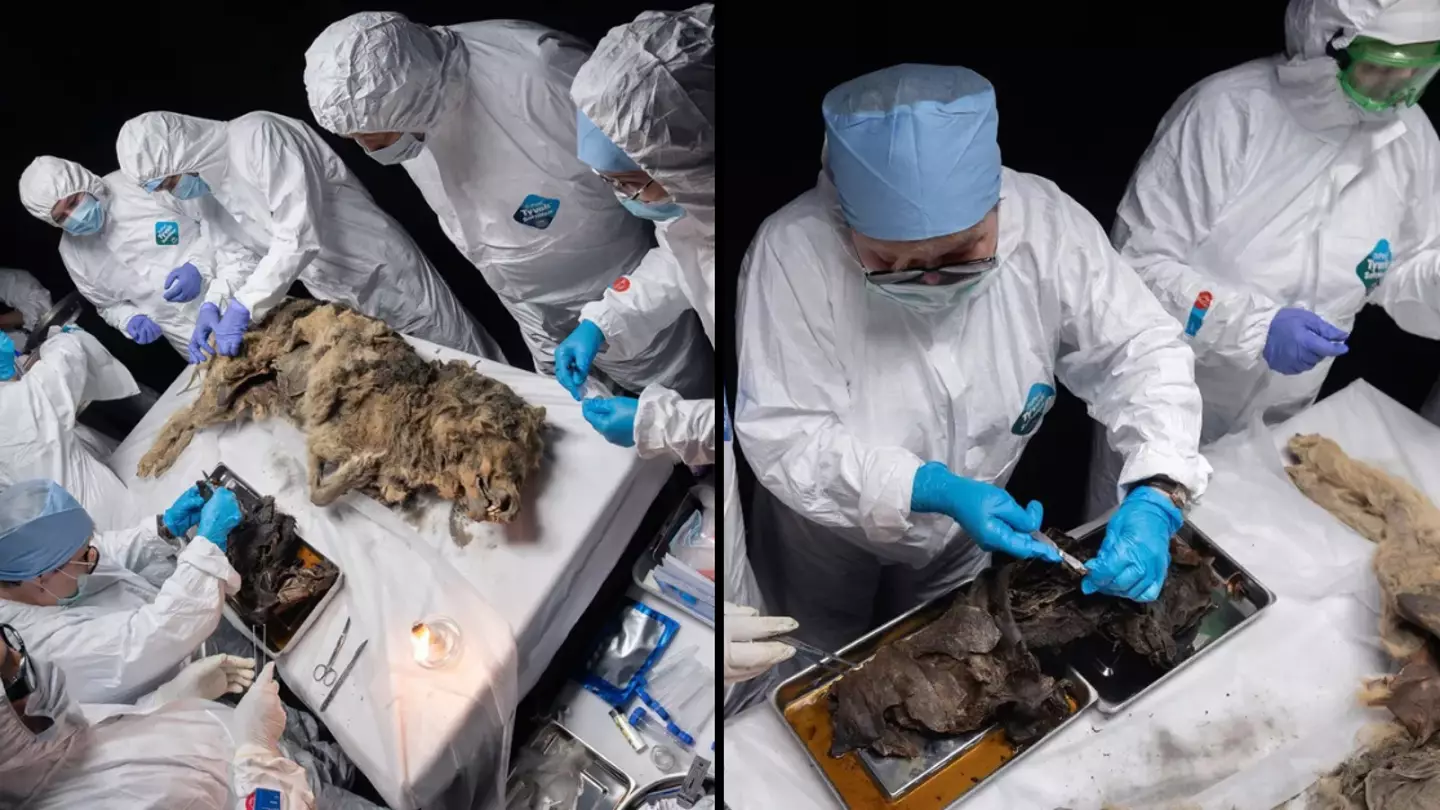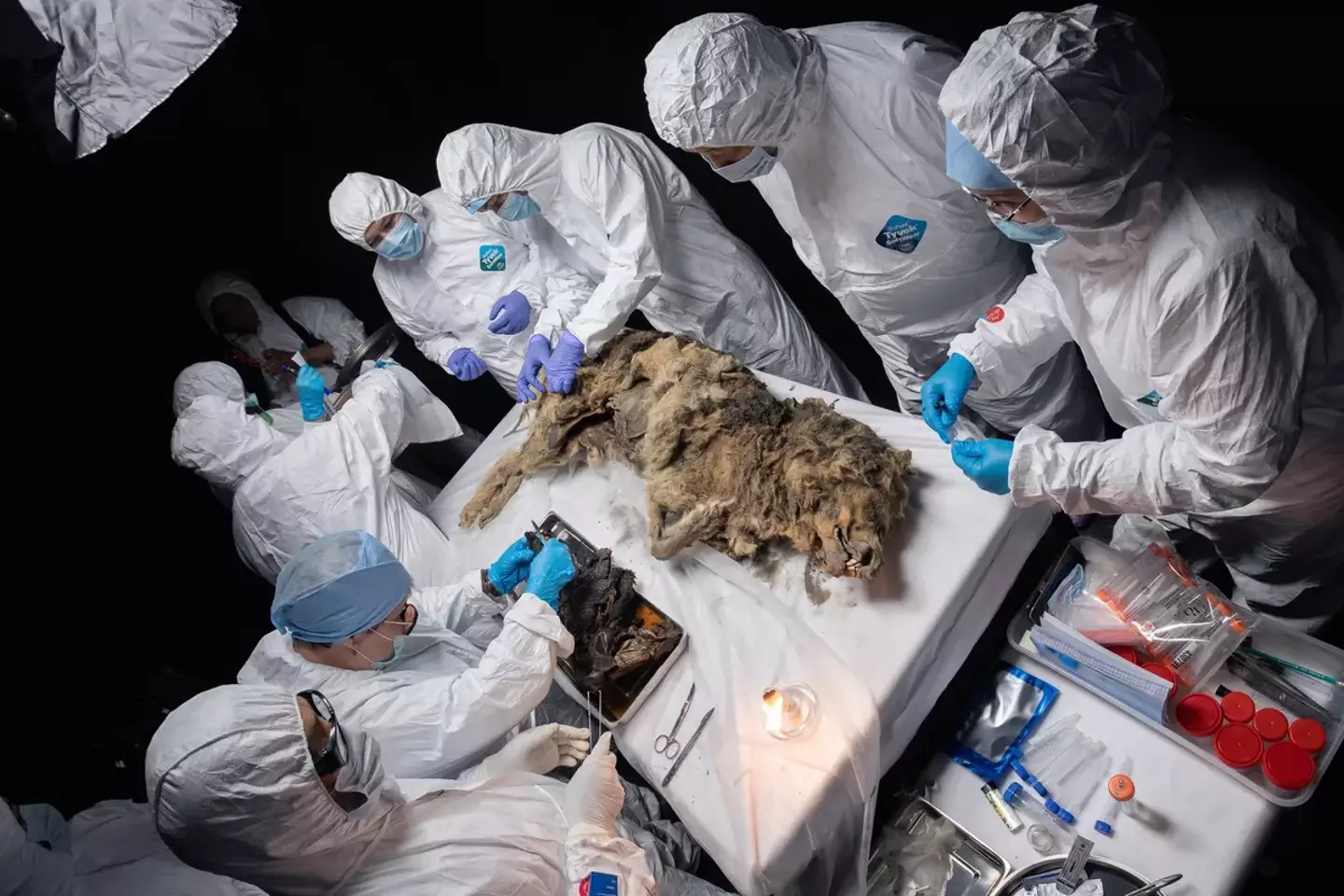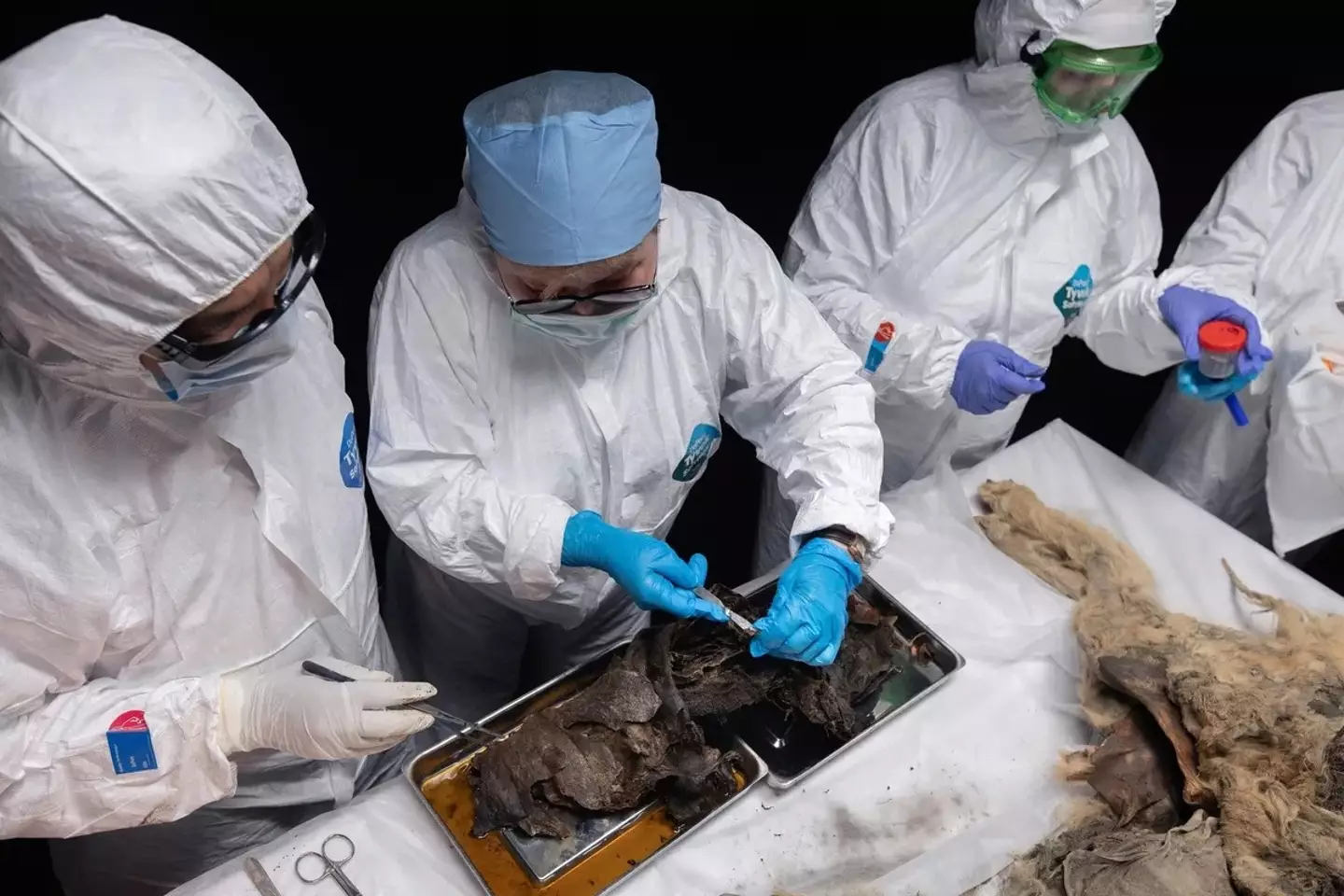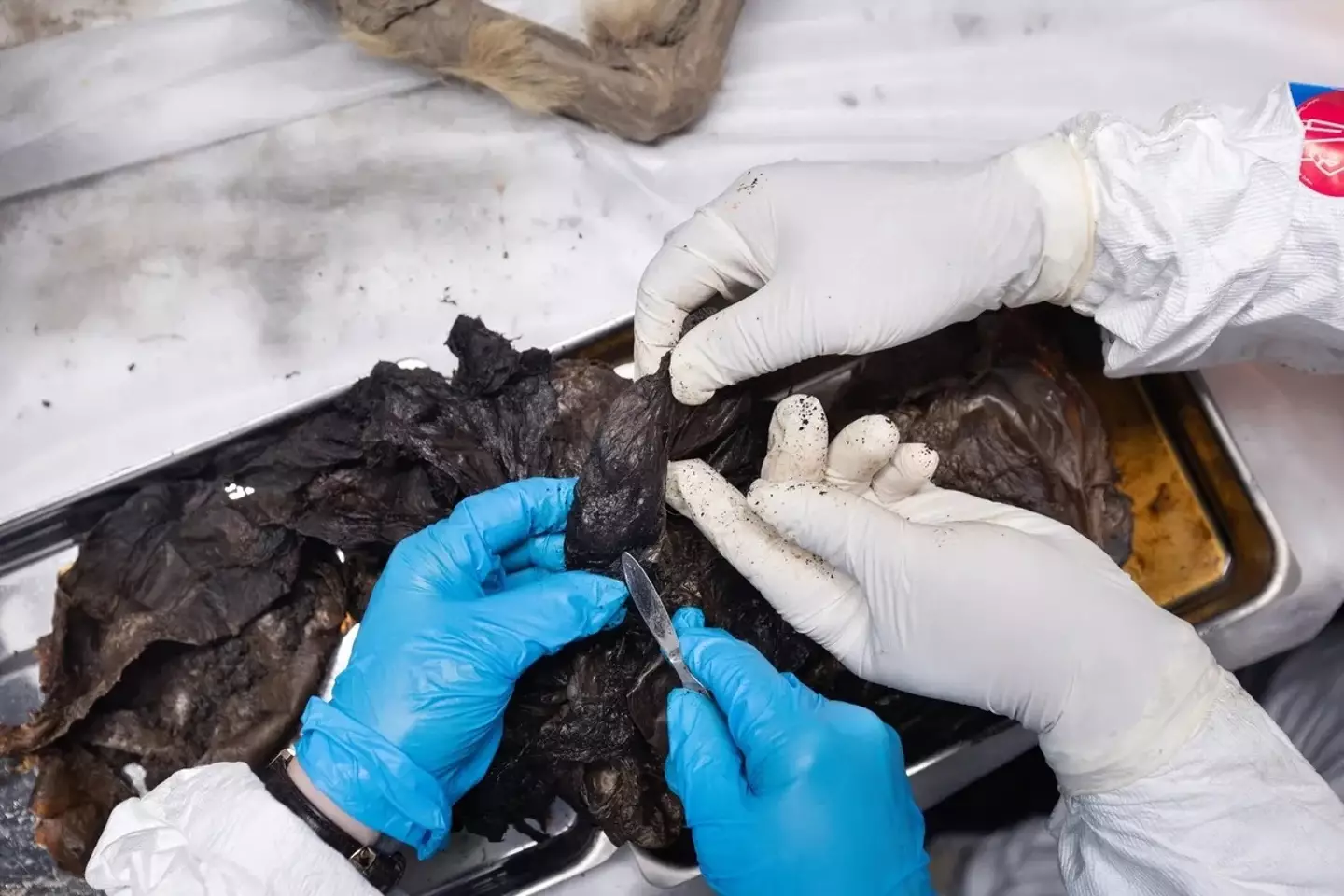
An ancient wolf dating back some 44,000 years has been discovered by scientists perfectly preserved in ice.
And now, it's being cut open to potentially reveal prehistoric viruses in its stomach.
The deceased animal was found in the very northern regions of Russia, covered by permafrost after being discovered by chance 40 metres underneath the icy top.

Advert
Located on the frozen tops of the Tirekhtyakh River in the Abyysky District of Russia’s Far East, it's a part of the world that, for the most part, remains cold and frosty all year round.
The wolf was, in fact, found back in 2021 and has been preserved by scientists ever since.
Now, it is finally undergoing an autopsy after initially being transferred to the Academy of Sciences of the Republic of Sakha (Yakutia).

In a completely sterile room, the scientists at the Mammoth Museum of the North-Eastern Federal University and the European University at Saint Petersburg cut open the wolf's carcass and took samples of its internal organs as well as the gastrointestinal tract, which would digest food.
Advert
The contents of the wolf's stomach are not yet known but could contain nasties such as an illness that perhaps killed the animal in the first place.
From this, the hope is that scientists can learn about the wolf's health and even what it might have eaten all those thousands of years ago.
Albert Protopopov, head of the department for the study of mammoth fauna of the Academy of Sciences of Yakutia, said: "His stomach has been preserved in an isolated form, there are no contaminants, so the task is not trivial.
"As a result of the preparation, we hope to obtain a snapshot of the biota of the ancient Pleistocene. It was an active and large predator, we have the opportunity to find out what it ate.
"In addition, the objects that his victims consumed also ended up in his stomach."
Advert

Maxim Cheprasov, head of the laboratory at the North-Eastern Federal University Mammoth Museum, also revealed the team had selected one 'premolar tooth' to find out the exact age of the animal when it passed away.
"Judging by the wear of the teeth and the development of the sagittal ridge, we can say that this is an adult male." Cheprasov added.
Artemy Goncharov, a professor in the Department of Epidemiology, Parasitology, and Disinfection at North-Western State Medical University, said that the study will allow for further understanding of bacteria from thousands of years ago.
"We see that living bacteria can survive in fossil animal finds for thousands of years, which are a kind of witnesses of those ancient times." he said.
Advert
North-Eastern Federal University is also studying another frozen wolf found in the Nizhnekolymsk region of Yakutia, Siberia, with another autopsy on the cards for that beast.
Topics: Animals, Science, Health, Education, Weird, World News